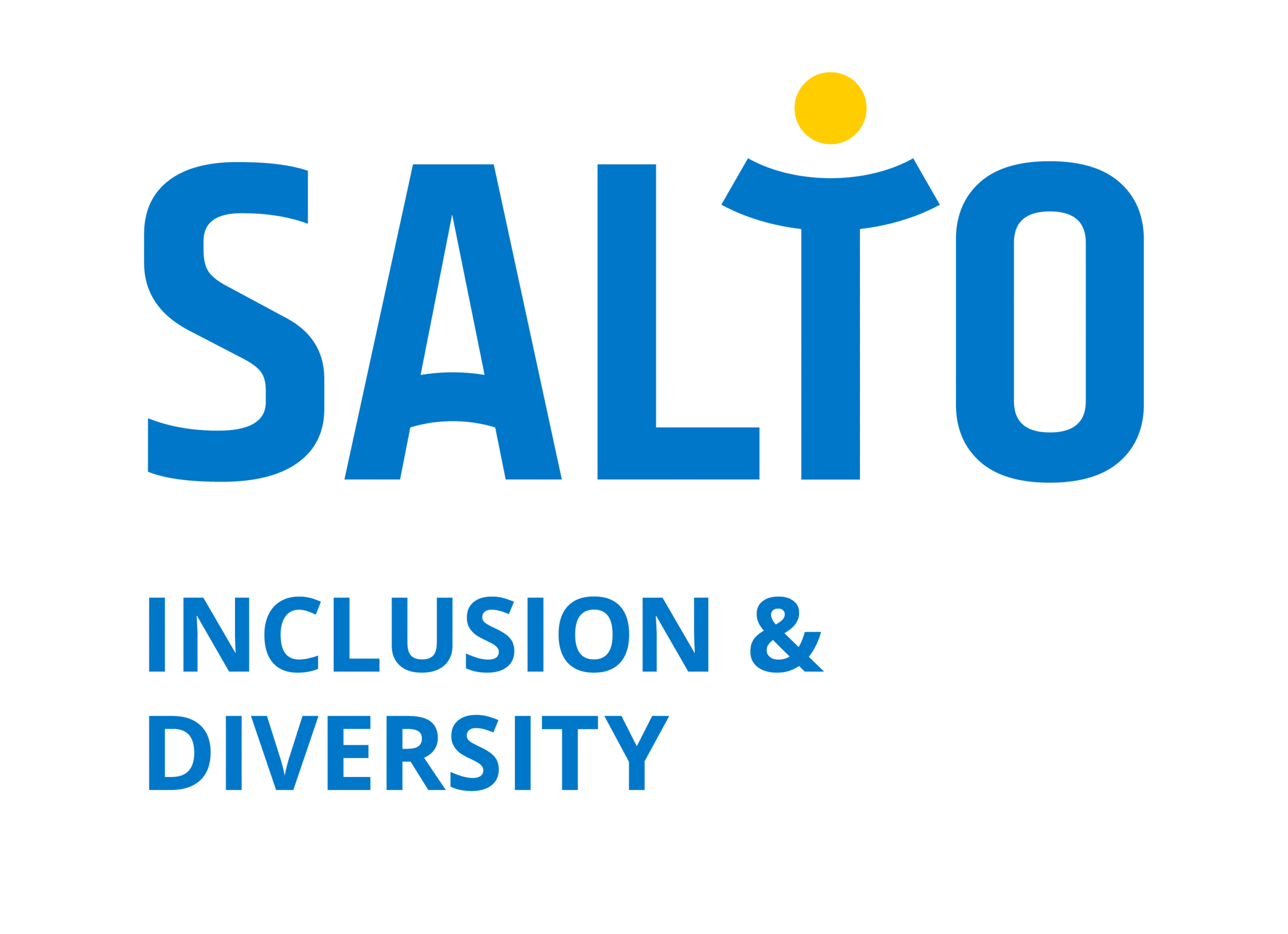At SALTO I have learned that where there is a will, there is a way.
Tony Geudens
Inclusion and Diversity in the youth field (Brussels)

That’s the best sign of recognition of the work we do!
At the end of last millennium (wow, it seems so long ago), there were increasing demands to the successful Youth for Europe programme to implement different European priorities. Whether it be the European year of XYZ, intercultural learning, „valorisation” or inclusion, National Agencies were requested to tackle them all.
The heads of National Agencies in 1999 suggested to the European Commission to create an operational structure that could support the Agencies in tackling all those priorities. That’s how the 4 initial SALTOs saw the light. The aim was to make the life of National Agencies easier, while at the same time reaching EU-wide goals.
There were some discussions about whether cooperation with SALTOs was an „extra work” for he Agencies, or if SALTO training offer would be in competition with the National Agencies’ own training courses. Soon everybody realised that together we could do more than each in our own corner. In the beginning, the European Commission steered the SALTO work relatively much, but gradually this shifted to the SALTO network giving input to the European Commission e.g. for their strategies, (mid-term) evaluations, new programme generations etc. That’s the best sign of recognition of the work we do!
Inclusion became a priority, to reach out to those who were the less obvious participants in projects
The idea behind the EU programmes for young people was that “we created Europe, but we forgot to create Europeans”. By bringing young people together (and those working with them), mental borders would be removed and Europe would become the place we would be comfortable in and feel we belong to.
Erasmus, Leonardo, Comenius & Grundvig gave students and other organised learners the opportunity to go abroad, but there was nothing for those „not in education”, for leisure time projects. Youth for Europe (and the follow-up programmes) were meant to cover this hiatus.
But when one could see who traditionally went on these youth projects, they were the „bright, well-off, able-bodied students with a Colgate smile from the majority population in big cities”. So what about all the rest, those young people who face obstacles to go abroad? That’s why inclusion became a priority, to reach out to those who were the less obvious participants in projects, those who would need an extra push and additional support. The European programmes are also for them.
In the first year of SALTO, this target group was called „disadvantaged youth”, but soon it became clear that this was very much labeling and stigmatising. We changed the term to „young people from disadvantaged backgrounds”, focussing on the situation they are in. But then, other people responsible for this situation were a bit pointed with the finger (e.g. parents, schools etc). That’s how for the first Inclusion Strategy in 2003, we came up with the cumbersome term „young people with fewer opportunities”. The advantage of it is that it focuses on the obstacles a person faces, rather than a personal trait.
I had lovely experiences with great colleagues
It has been an amazing job. That’s why I am still working for SALTO after 25 years. It is wonderful how you can change things and bring life-changing projects alive. In my quarter century at SALTO, I have learned (and felt) that where there is a will, there is a way.
In the 25 years I had lovely experiences with great colleagues: being invited to China for what they called the High-Level People 2 People Dialogue between EU and China on Inclusion, thrown in a pool by participants at the end of a training course, having the Youth Inclusion & Diversity strategy expanded to the education and training sector, mixing up „double room” and „twin room” when organising my first conference, creating an app to raise the quality of mobility projects, having organised a training course in Odessa shortly before the Russian army started bombing it, developing a road map for Inclusion & Diversity in Europe and a guide for assessors on Inclusion & Diversity, organising Bridges for Recognition where the Youthpass was born etc. It is nice to contribute to inclusion and youth work in Europe.
We need to ensure that there is enough funding available to grant all these empowering youth projects
The SALTO network has become increasingly diverse. There are 11 SALTO resource centres now, some responsible for youth or education & training only, others cross-sectoral. So I hope we can continue to make sense of this incoherent structure and present ourselves in a clear and logical way to the outside world. But the structure should not be the focus, but rather all the resources and support that we can offer to our colleagues in the National Agencies and to (potential) beneficiaries in the programmes.
I wish the SALTO the skills, time and funding to be able to share all the resources we offer for the best use by the National Agencies and programme beneficiaries. But of course, if we bring more people (with fewer opportunities) towards the EU youth programmes, we also need to ensure that there is enough funding available to grant all these empowering youth projects.
I have the pleasure to work for the SALTO since the very beginning
I’m Tony Geudens, project officer at SALTO-YOUTH Inclusion & Diversity (Belgium-Flanders). I’m often called the „SALTO dinosaur”. I have the pleasure to work for the SALTO since the very beginning. After 2 years as an educational advisor in the European Youth Centres, I was looking for a job just when they created the initial 4 SALTO-YOUTH (training) Resource Centres in September 2000. They were looking for someone with an international trainer profile, so I guess I was the right person at the right place.

